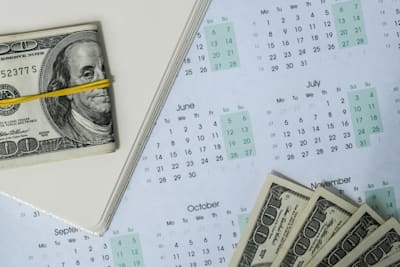Ready to build a better future? Apply now.
Personal loansIt feels great to make your final personal loan payment and close out a loan. You might even want to pay it off early just to feel this sense of accomplishment sooner. But can you do this?
Yes, you can! But should you?
If you’re thinking about paying off a loan early, there are some things you’ll want to know. We’ve pulled together everything you should consider before paying off your loan early.
Here’s what we’re going to cover:
- Benefits of paying off a personal loan early
- What is a prepayment penalty?
- Types of prepayment penalties
- Is there a better use for my money?
- Oportun: Affordable lending options designed with you in mind
Key takeaways:
- It’s possible to pay off a personal loan early. But before you decide to do this, it’s important to consider what it means for your financial situation.
- The main benefit of paying off a personal loan early is that you may be able to save money on interest. It can also simplify your monthly expenses and reduce your debt-to-income ratio.
- The largest drawback to paying off a personal loan early is the prepayment penalty charged by some lenders. This penalty could be more than the amount you’ll save in interest.
Benefits of paying off a personal loan early
Here are some of the benefits you might enjoy by paying off a personal loan early.
Saving money on interest
When you borrow money from a lender, you are charged interest over the life of the loan. By paying off your personal loan early, you can avoid months or even years of interest charges, bringing down your loan’s total cost.
Simplifying expenses
Another benefit of paying off your personal loan early is that it simplifies your monthly expenses. Once your personal loan is paid in full, you won’t need to worry about making payments anymore. It’s one less thing to worry about each month.
Reducing your debt-to-income ratio (DTI)
When you apply for credit, lenders often look at how much you currently owe compared to how much you earn. This is called your debt-to-income ratio, or DTI. It’s one way that lenders measure your ability to repay a loan.
To calculate your DTI, divide your monthly debt payments by your monthly income. If your DTI is more than 43 percent, it may be harder for you to qualify for financing. Paying off your personal loan early can help lower your DTI, because you will owe less money.
These are all good reasons to pay off your personal loan ahead of schedule. But there is a major downside you’ll want to consider before making this decision.
What is a prepayment penalty?
The largest drawback to paying off a loan early is the prepayment penalty charged by some lenders. This is a fee you owe if you repay your loan before the date it is due.
Why would your lender charge you a fee for paying your loan back earlier? It’s because they lose money on interest when you do. By charging you a prepayment penalty, your lender can make up some of the money they’re losing on months or years of interest payments.
If you’re not sure whether your lender charges a prepayment penalty, just look at your loan agreement. Thanks to the Truth in Lending Act, your lender is required to tell you:
- Whether they charge a prepayment penalty
- What type of penalty it is
- When the penalty applies (anytime, only during the first year of the loan, etc.)
Even if you will owe a prepayment penalty, it may still be worthwhile to pay off your personal loan early. It all depends on which is greater, the amount you will save in interest or the cost of the prepayment penalty. To find out, simply subtract the prepayment penalty from your potential interest savings.
Types of prepayment penalties
Here are the most common types of prepayment penalties. Check your loan agreement to see which one, if any, your lender charges.
Equal to missed interest
Some lenders charge a prepayment penalty that’s equal to the amount of interest they’ll lose if you pay them back early. With this type of penalty, you won’t save any money by paying off your personal loan early.
Percentage of remaining balance
Some prepayment penalties are a percentage of your remaining loan balance. If this percentage is lower than your loan’s interest rate, you may still save some money. If it’s higher than your interest rate, you could end up losing money by paying off the loan early.
Flat fee
Some lenders charge a flat fee for prepayment. This fee will be the same amount, no matter how much you still owe on your personal loan. With this type of prepayment penalty, you may or may not save money with early payment. It depends on whether the fee is lower or higher than your potential interest savings.
Is there a better use for my money?
Let’s say you’ve got enough money saved to pay off your loan early. Are there ways to use that same amount of money that would benefit you more? You might want to consider:
- Paying down other debts with higher interest rates
- Investing in the stock market
- Contributing to your retirement account
- Increasing your emergency fund
Some of these options may offer larger financial benefits than paying off your personal loan early.
For example, adding to your emergency fund gives you greater security if an unexpected expense comes up. It may even prevent you from needing another personal loan in the future. Similarly, investing your extra money in the stock market may offer a better return than the amount of interest you’ll save by paying off your personal loan early.
Oportun: Affordable lending options designed with you in mind
Now that you know all about paying off a personal loan early, you’ll be able to make an informed decision. You may also want to look at affordable credit options from Oportun. Visit our homepage to learn about:
- Personal loans
- Secured personal loans
- Credit cards
- And more!
Sources
Consumer Financial Protection Bureau. What is a debt-to-income ratio? Why is the 43% debt-to-income ratio important?
Office of the Comptroller of the Currency. Truth in Lending Act
FICO. What’s in my FICO® scores?
The information in this site, including any third-party content and opinions, is for educational purposes only and should not be relied upon as legal, tax, or financial advice or to indicate the availability or suitability of any Oportun product or service to your unique circumstances. Contact your independent financial advisor for advice on your personal situation.
Personal loans through Oportun subject to credit approval. Terms may vary by applicant and state and are subject to change. If you refinance, you may pay interest over a longer period of time or at a higher rate and the overall cost of your loan may be higher. Loans in NM and WI are originated by Oportun, Inc. California loans made pursuant to a California Financing Law license. NV loans originated by Oportun, LLC. In AL, AK, AR, AZ, CA, DE, FL, GA, HI, ID, IL, IN, KS, KY, LA, MI, MN, MO, MS, MT, NC, ND, NE, NH, NJ, OH, OK, OR, PA, RI, SC, SD, TN, TX, UT, VA, VT, WA and WY loans are originated by Pathward®, N.A.. Terms, conditions, and state restrictions apply.
You might also like










